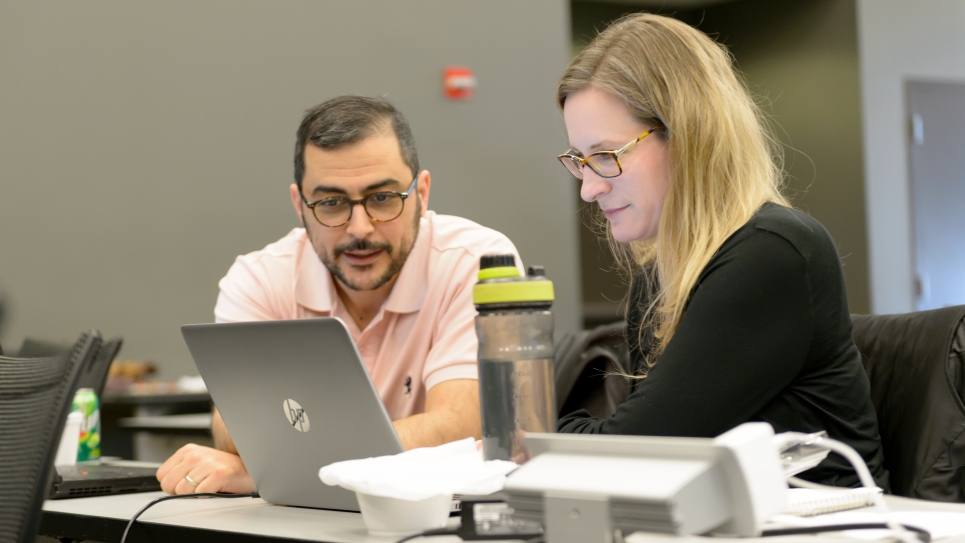
More than 50 researchers attended the ALCF Computational Performance Workshop this spring to work directly with ALCF staff members to boost code performance and prepare for future research projects at the facility.
The annual ALCF Computational Performance Workshop is designed to help researchers boost code performance and prepare for future ALCF projects.
Launching a research project on leadership-class supercomputers can be a daunting task. Sometimes hands-on assistance is the best way to prepare codes for the extreme scale and unique architectures that characterize these powerful systems.
This spring, more than 50 researchers from across the country visited the Argonne Leadership Computing Facility (ALCF), a U.S. Department of Energy (DOE) Office of Science User Facility, for the ALCF Computational Performance Workshop. The annual training event is designed to help attendees boost code performance and prepare for future ALCF projects through allocation programs, such as the ALCF Data Science Program (ADSP) and DOE’s Innovative and Novel Computational Impact on Theory and Experiment (INCITE) program.
“Our goal is to connect attendees with the experts who know our systems best and to introduce them to the tools and services that can propel their research forward,” said Yasaman Ghadar, an ALCF assistant computational scientist, who co-organized this year’s workshop with Ray Loy, ALCF lead for training, debuggers, and math libraries.
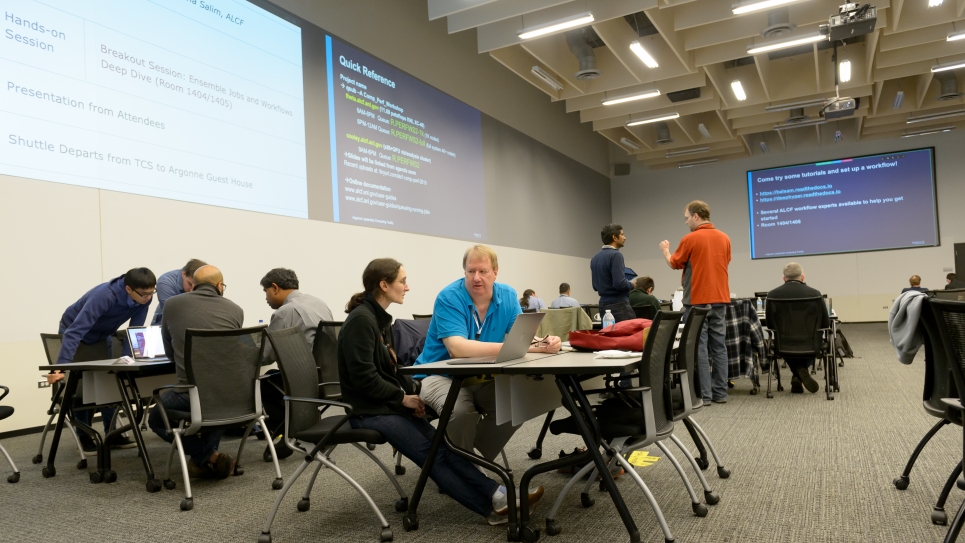
Workshop participants work together to boost code performance on ALCF systems.
The three-day, on-site workshop provided a venue for users to advance their research by working directly with ALCF computational scientists, performance engineers, data scientists, and visualization experts, as well as invited guests from Intel, ParaTools Inc. (TAU), and Rice University (HPCToolkit). Dedicated access to the ALCF’s Theta and Cooley supercomputers allowed the workshop participants to test, debug, and optimize their applications in real time.
“Getting face time with the ALCF team allowed me to more efficiently troubleshoot technical challenges in our research,” said Trevor Rhone, a postdoctoral researcher at Harvard University and co-principal investigator of an ADSP project along with Harvard professor Efthimios Kaxiras.
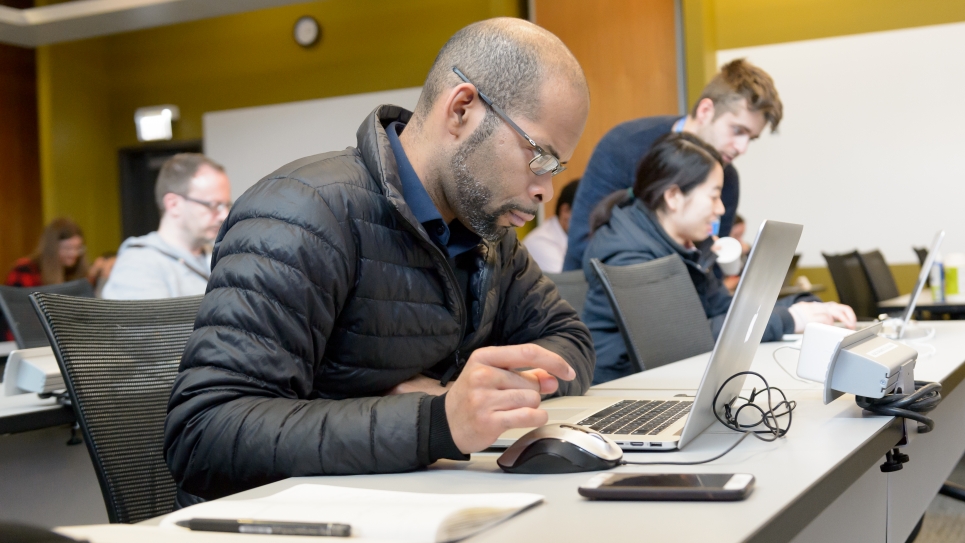
Trevor Rhone of Harvard University attended the workshop to advance computational work for his ALCF Data Science Program project.
Rhone attended the workshop to learn about tools that could help manage the complex workflows and large amounts of data involved in his work, which is focused on studying layered materials and predicting their magnetic and thermodynamic properties to accelerate the discovery of new materials for targeted applications.
Rhone collaborated with ALCF Data Science team members Murat Keceli and Misha Salim to advance their use of Balsam, an ALCF-developed workflow service, for managing and automating the project’s high-throughput density functional theory (DFT) calculations. Their work enabled Rhone to tackle a new set of magnetic materials that required a complicated multi-step DFT simulation workflow in which Balsam automatically fixed and reinitiated any steps that timed out or failed along the way.
“Using the workshop reservations on Theta, the Balsam setup allowed me to begin and complete 75 percent of the calculations needed for the second phase of my study,” Rhone said.
In addition to hands-on and breakout tutorial sessions, the event featured talks on a wide range of topics, including debugging and performance profiling tools, I/O optimization, and data and learning frameworks (workshop presentation slides can be viewed here). Attendees also had the opportunity to present a summary of their challenging scientific problems and progress towards scaling their applications and workflows on ALCF resources.
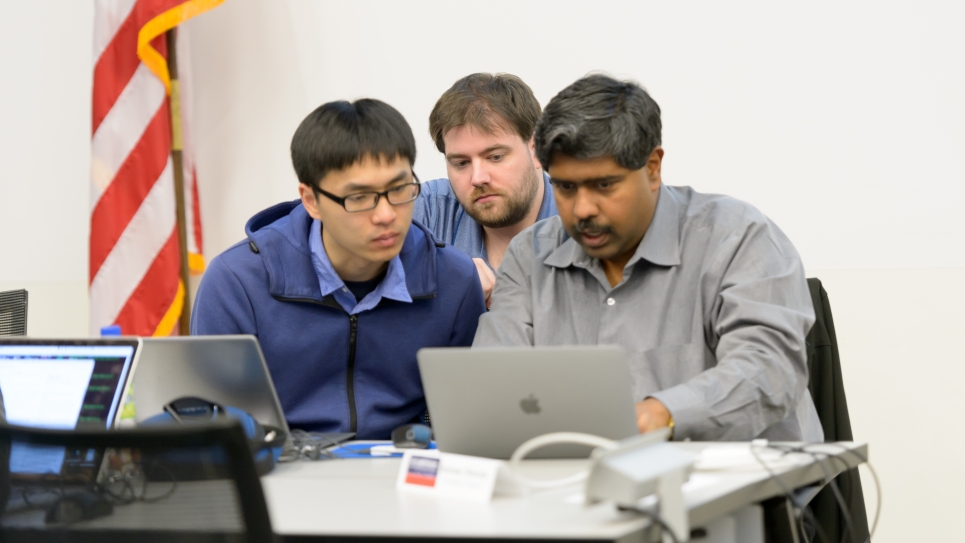
Researchers from Missouri University of Science and Technology use the TAU profiling tool to analyze and optimize their code's performance on ALCF systems.
“Being able to hear from and talk with developers and experts was extremely useful and provided me with a faster learning rate and insights into using these tools that I likely wouldn’t have learned otherwise,” said Gary Nicholson, a researcher from Missouri University of Science and Technology.
For Nicholson, the workshop presented an opportunity to improve code performance for an INCITE project, led by Missouri S&T professor Lian Duan, that is studying the impact of turbulence on the swept wings of transport aircraft.
Working with Sameer Shende, president of ParaTools, Inc., and Argonne computational scientist Marta García Martínez, Nicholson and his colleagues were able to port their code to Theta and use the TAU profiling tool to analyze and optimize its performance.
“I’ll be able to take what I learned and use it to track down a bug I’ve been having difficulty with,” Nicholson said. “The profiling tools will help us improve the efficiency of our code, so hopefully we can simulate bigger cases or more cases than we normally would be capable of.”
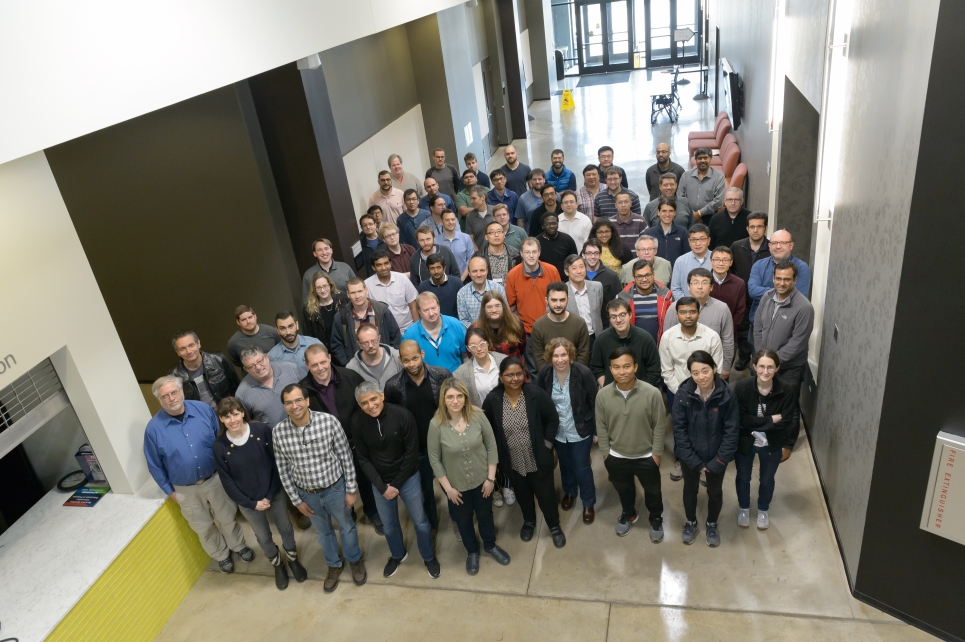
More than 50 researchers attended the 2019 ALCF Computational Performance Workshop.
Pinaki Pal, a research engineer in Argonne’s Energy Systems division, has been using machine learning techniques on ALCF computing resources through a Director’s Discretionary allocation to gain insights into complex combustion phenomena in order to optimize and accelerate the design of engines. He attended the workshop to bolster his ongoing research and to prepare for a future ADSP proposal.
“I intend to use some of the techniques I learned at the workshop to develop and streamline deep learning models on Theta in relation to my current projects,” Pal said. “The workshop also gave me an opportunity to network with a number of data science experts from ALCF and industry, which will be crucial for future collaborations.”
The ALCF will hold another hands-on training event—the annual Simulation, Data, and Learning Workshop—in October. For details on this workshop and other training opportunities, stay tuned to the ALCF training webpage or subscribe to our mailing list.
The ALCF is supported by the DOE Office of Science.
Argonne National Laboratory seeks solutions to pressing national problems in science and technology. The nation's first national laboratory, Argonne conducts leading-edge basic and applied scientific research in virtually every scientific discipline. Argonne researchers work closely with researchers from hundreds of companies, universities, and federal, state and municipal agencies to help them solve their specific problems, advance America's scientific leadership and prepare the nation for a better future. With employees from more than 60 nations, Argonne is managed by UChicago Argonne, LLC for the U.S. Department of Energy's Office of Science.
The U.S. Department of Energy's Office of Science is the single largest supporter of basic research in the physical sciences in the United States and is working to address some of the most pressing challenges of our time. For more information, visit https://energy.gov/science